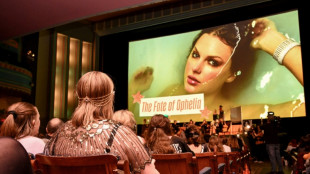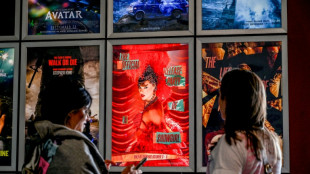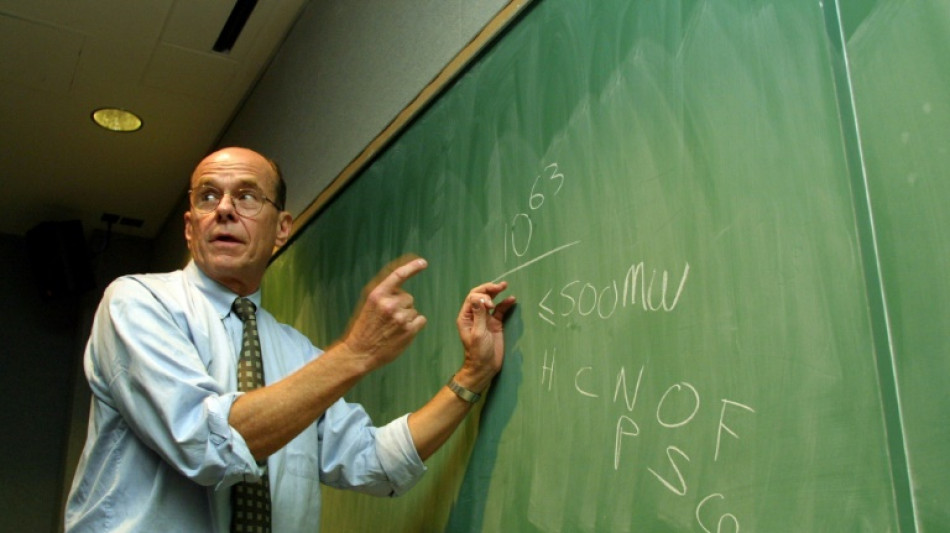
-
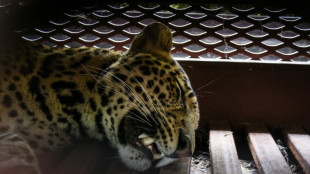 Leopard captured after wandering into Indonesian hotel
Leopard captured after wandering into Indonesian hotel
-
Israel, Hamas due in Egypt for ceasefire talks

-
 Rescuers scramble to deliver aid after deadly Nepal, India floods
Rescuers scramble to deliver aid after deadly Nepal, India floods
-
Tokyo stocks soar on Takaichi win, Paris sinks as French PM resigns
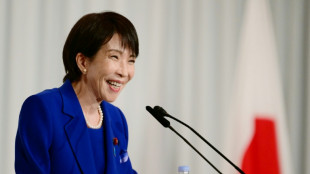
-
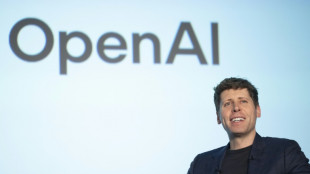 OpenAI offers more copyright control for Sora 2 videos
OpenAI offers more copyright control for Sora 2 videos
-
Australia prosecutors appeal 'inadequate' sentence for mushroom murderer: media
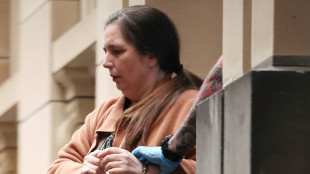
-
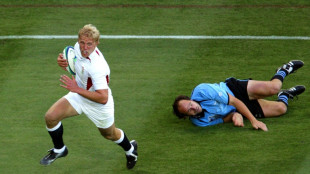 Rugby World Cup-winning England star Moody has motor neurone disease
Rugby World Cup-winning England star Moody has motor neurone disease
-
Trump says White House to host UFC fight on his 80th birthday
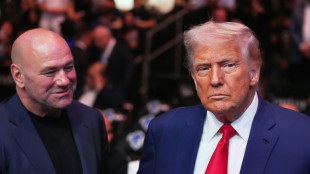
-
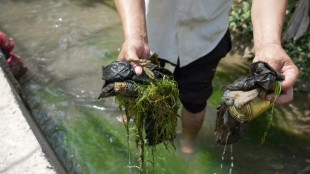 Vast reserves, but little to drink: Tajikistan's water struggles
Vast reserves, but little to drink: Tajikistan's water struggles
-
US government shutdown may last weeks, analysts warn
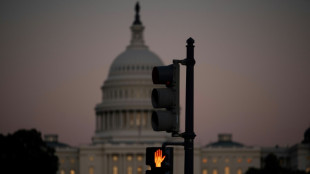
-
 Arsenal host Lyon to start new Women's Champions League format
Arsenal host Lyon to start new Women's Champions League format
-
Gloves off, Red run, vested interests: Singapore GP talking points
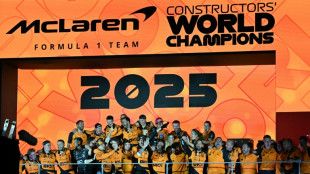
-
 Bills, Eagles lose unbeaten records in day of upsets
Bills, Eagles lose unbeaten records in day of upsets
-
Muller on target as Vancouver thrash San Jose to go joint top

-
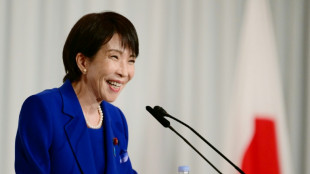 Tokyo soars, yen sinks after Takaichi win on mixed day for Asia
Tokyo soars, yen sinks after Takaichi win on mixed day for Asia
-
China's chip challenge: the race to match US tech
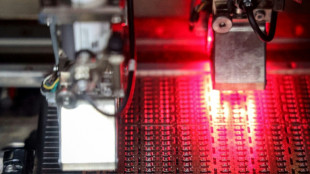
-
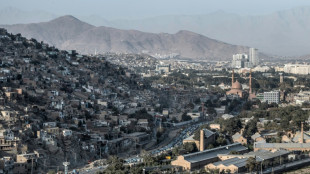 UN rights council to decide on creating Afghanistan probe
UN rights council to decide on creating Afghanistan probe
-
Indonesia sense World Cup chance as Asian qualifying reaches climax

-
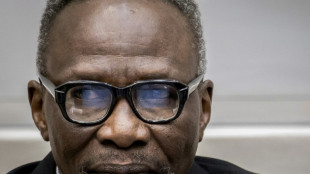 ICC to give war crimes verdict on Sudan militia chief
ICC to give war crimes verdict on Sudan militia chief
-
Matthieu Blazy to step out as Coco's heir in Chanel debut
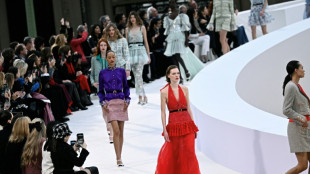
-
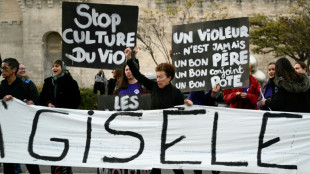 Only man to appeal in Gisele Pelicot case says not a 'rapist'
Only man to appeal in Gisele Pelicot case says not a 'rapist'
-
Appetite-regulating hormones in focus as first Nobel Prizes fall
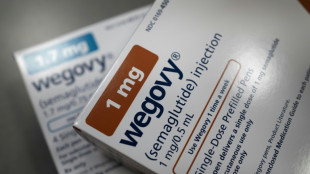
-
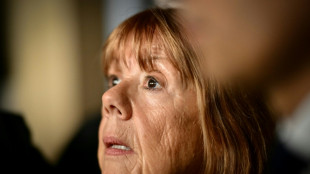 Gisele Pelicot: French rape survivor and global icon
Gisele Pelicot: French rape survivor and global icon
-
Negotiators due in Egypt for Gaza talks as Trump urges quick action
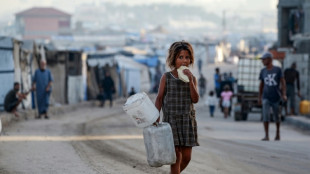
-
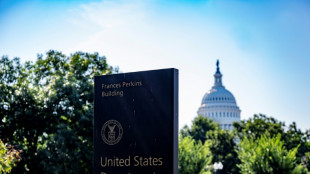 'My heart sank': Surging scams roil US job hunters
'My heart sank': Surging scams roil US job hunters
-
Competition heats up to challenge Nvidia's AI chip dominance
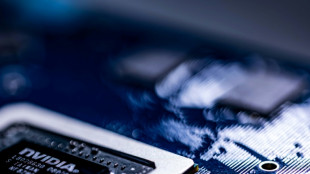
-
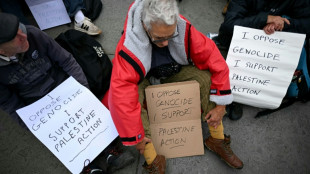 UK police to get greater powers to restrict demos
UK police to get greater powers to restrict demos
-
Guerrero grand slam fuels Blue Jays in 13-7 rout of Yankees
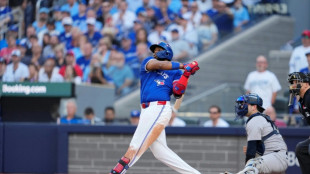
-
 Five-try Bayonne stun champions Toulouse to go top in France
Five-try Bayonne stun champions Toulouse to go top in France
-
Fisk reels in Higgo to win maiden PGA Tour title in Mississippi
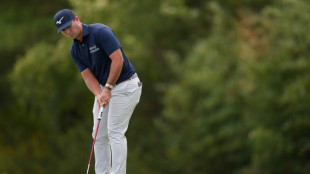
-
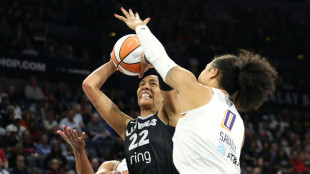 Aces overpower Mercury for 2-0 lead in WNBA Finals
Aces overpower Mercury for 2-0 lead in WNBA Finals
-
Bayonne stun champions Toulouse to go top in France

-
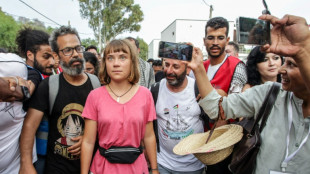 Greta Thunberg among Gaza flotilla detainees to leave Israel
Greta Thunberg among Gaza flotilla detainees to leave Israel
-
Atletico draw at Celta Vigo after Lenglet red card
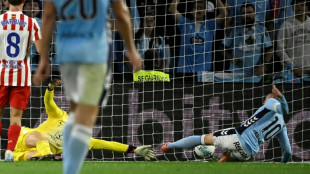
-
 Ethan Mbappe returns to haunt PSG as Lille force draw with Ligue 1 leaders
Ethan Mbappe returns to haunt PSG as Lille force draw with Ligue 1 leaders
-
Hojlund fires Napoli into Serie A lead as AC Milan held at Juve

-
 Vampires, blood and dance: Bollywood horror goes mainstream
Vampires, blood and dance: Bollywood horror goes mainstream
-
Broncos rally snaps Eagles unbeaten record, Ravens slump deepens

-
 Former NFL QB Sanchez charged after allegedly attacking truck driver
Former NFL QB Sanchez charged after allegedly attacking truck driver
-
France unveils new government amid political deadlock
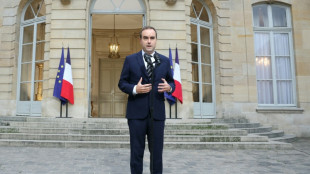
-
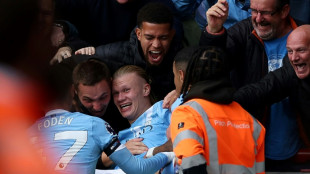 Child's play for Haaland as Man City star strikes again
Child's play for Haaland as Man City star strikes again
-
India crush Pakistan by 88 runs amid handshake snub, umpiring drama
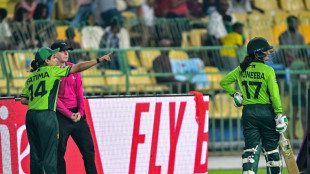
-
 Hojlund fires Napoli past Genoa and into Serie A lead
Hojlund fires Napoli past Genoa and into Serie A lead
-
Sevilla rout 'horrendous' Barca in Liga thrashing
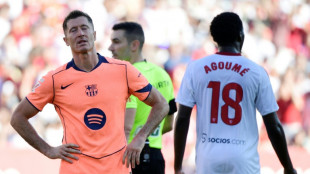
-
 Haaland fires Man City to win at Brentford, Everton end Palace's unbeaten run
Haaland fires Man City to win at Brentford, Everton end Palace's unbeaten run
-
Haaland extends hot streak as Man City sink Brentford
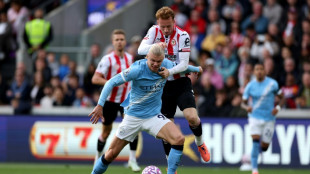
-
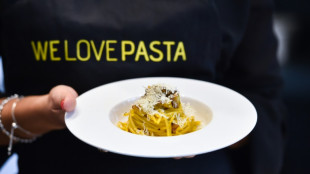 Italy working hard to prevent extra US tariffs on pasta
Italy working hard to prevent extra US tariffs on pasta
-
Sinner out of Shanghai Masters as Djokovic battles into last 16
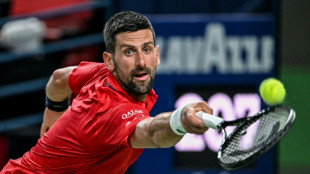
-
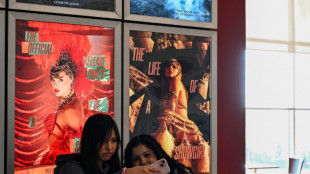 Swift rules N. America box office with 'Showgirl' event
Swift rules N. America box office with 'Showgirl' event
-
Ryder Cup hero MacIntyre wins Alfred Dunhill Links on home soil


Click chemistry, Nobel-winning science that may 'change the world'
The Nobel Chemistry Prize was awarded to three scientists on Tuesday for their work on click chemistry, a way to snap molecules together like Lego that experts say will soon "change the world".
But how exactly does it work?
Imagine two people walking through a mostly empty room towards each other then shaking hands.
"That's how a classical chemical reaction is done," said Benjamin Schumann, a chemist at Imperial College, London.
But what if there was lots of furniture and other people clogging up the room?
"They might not meet each other," Schumann said.
Now imagine those people were molecules, tiny groups of atoms that form the basis of chemistry.
"Click chemistry makes it possible for two molecules that are in an environment where you have lots of other things around" to meet and join with each other, he told AFP.
The way click chemistry snaps together molecular building blocks is also often compared to Lego.
But Carolyn Bertozzi, who shared this year's chemistry Nobel with Barry Sharpless and Morten Meldal, said it would take a very special kind of Lego.
Even if two Legos were "surrounded by millions of other very similar plastic toys" they would only click in to each other, she told AFP.
- 'Changed the playing field' -
Around the year 2000, Sharpless and Meldal separately discovered a specific chemical reaction using copper ions as a catalyst which "changed the playing field" and became "the cream of the crop", said Silvia Diez-Gonzalez, a chemist at the Imperial College, London.
Copper has many advantages, including that reactions could involve water and be done at room temperature rather than at high heat which can complicate matters.
This particular way of connecting molecules was far more flexible, efficient and targeted than had ever been possible before.
Since its discovery, chemists have been finding out all the different kinds of molecular architecture they can build with their special new Lego blocks.
"The applications are almost endless," said Tom Brown, a British chemist at Oxford University that has worked on DNA click chemistry.
But there was one problem with using copper as a catalyst. It can be toxic for the cells of living organisms -- such as humans.
So Bertozzi built on the foundations of Sharpless and Meldal's work, designing a copperless "way of using click chemistry with biological systems without killing them," Diez-Gonzalez said.
Previously the molecules clicked together in a straight flat line -- like a seat belt -- but Bertozzi discovered that forcing them "to be a bit bent" made the reaction more stable, Diez-Gonzalez said.
Bertozzi called the field she created bioorthogonal chemistry -- orthogonal means intersecting at right angles.
- 'Tip of the iceberg' -
Diez-Gonzalez said she was "a bit surprised" that the field had been awarded with a Nobel so soon, because "there are not that many commercial applications out there yet".
But the future looks bright.
"We're kind of at the tip of the iceberg," said American Chemical Society President Angela Wilson, adding that this "chemistry is going to change the world."
Bertozzi said that there are so many potential uses for click chemistry, that "I can't even really enumerate them".
One use is for developing new targeted medicines, some of which could involve "doing chemistry inside human patients to make sure that drugs go to the right place," she told the Nobel conference.
Her lab has started research on potential treatments for severe Covid, she added.
Another hope is that it can lead to a more targeted way to diagnose and treat cancer, as well make chemotherapy have fewer, less severe side effects.
It has even created a way to make the bacteria that causes Legionnaires' disease become fluorescent so it easier to spot in water supplies.
Already, click chemistry has been used "to create some very, very durable polymers" that protect against heat, as well as in forms of glue in nano-chemistry, Meldal told AFP.
"I think it's going to completely revolutionise everything from medicine to materials," she said.
C.Meier--BTB


